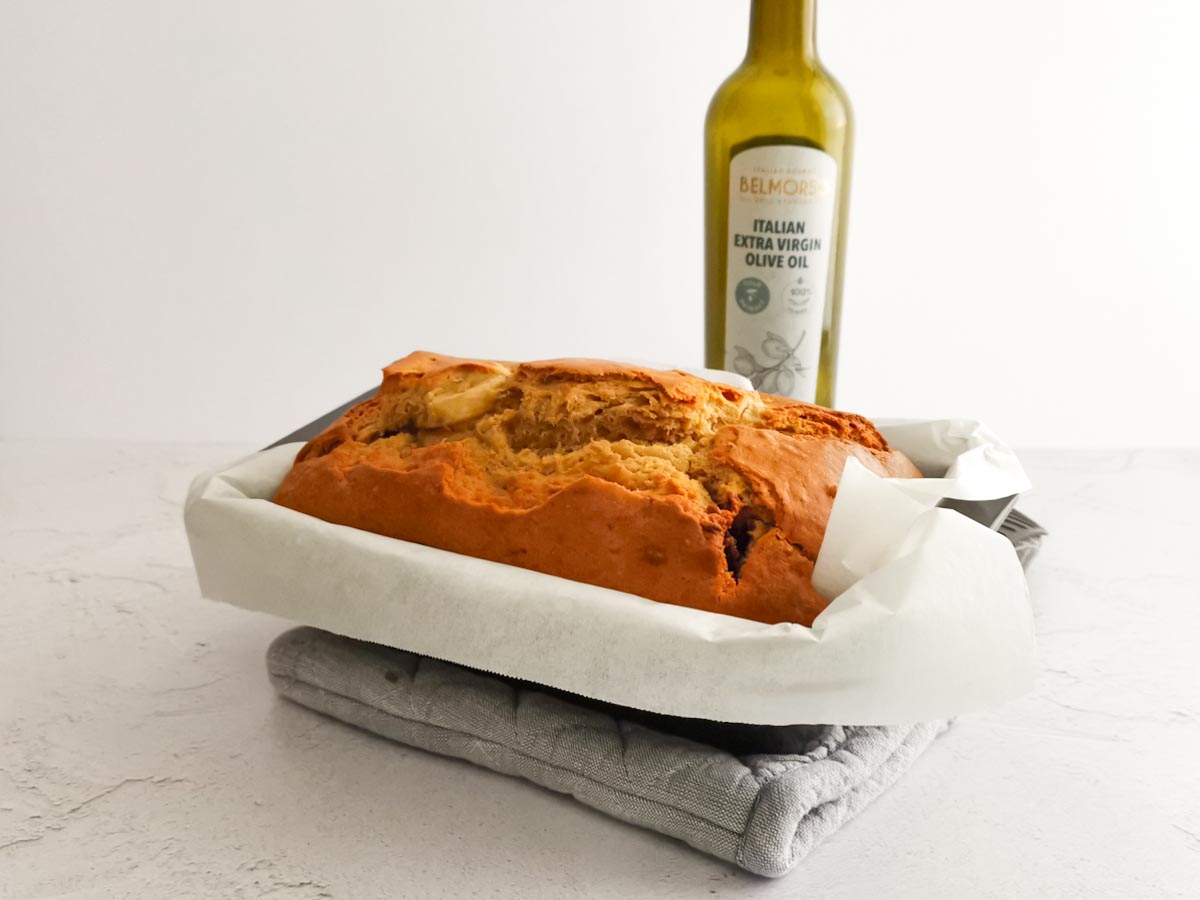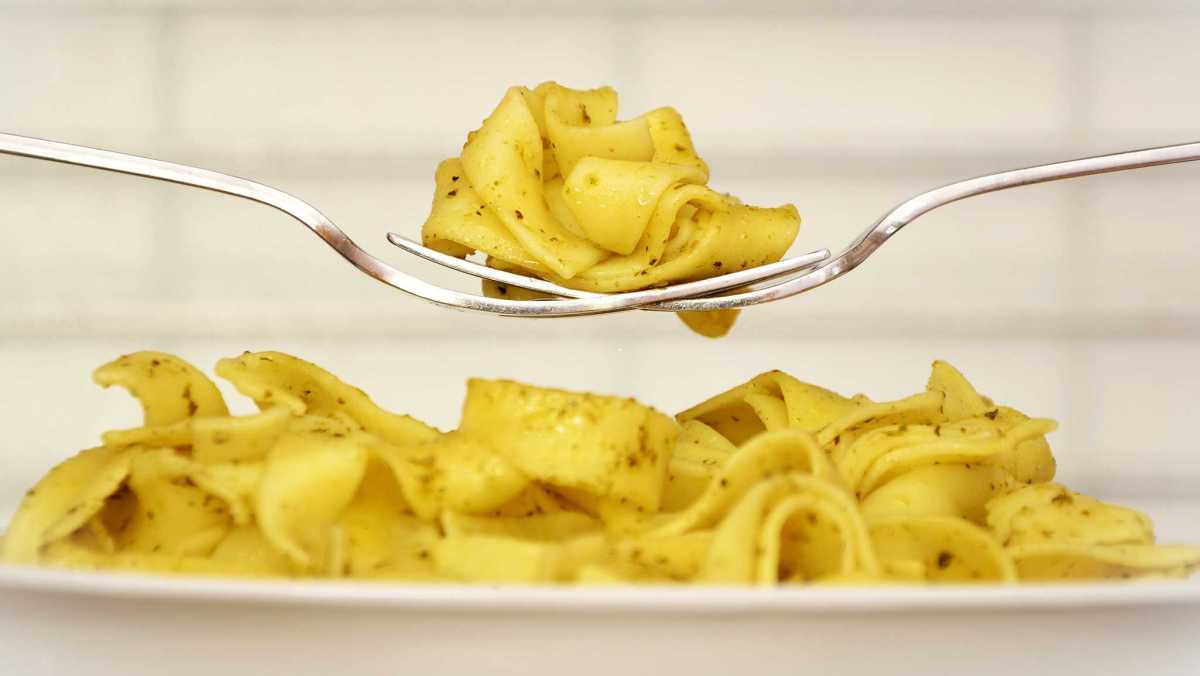
The Dinette Teller – 36. Cooking Pasta the Italian Way
Cooking pasta is worldwide renown as the Italian pride… and it definitely is!
Italians eat pasta on average 5-6 times a week. However, it is recommended to eat it for lunch avoiding carbs at night.
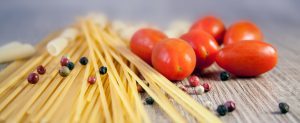
There are few thing that you need to know if you don’t want Italians to criticise your pasta dish! Obviously, the main thing is to make a good sauce. Nevertheless, there are also few other rules that need to be followed to obtain the perfect texture and taste.
Today, I am going to share with you the main tips and secrets to start cooking your pasta the Italian way!
How many of these habits did you think to be right?
Pasta qualities and shapes, are not all the same?
That’s absolutely not true! There exists a wide range of different types of pasta and not all the brands are equivalent. Ingredients and manufacture processes make the difference. For instance, the kind of wheat and flour used for the dough can affect the pasta quality. Ancient “White Art” handcraft techniques are sometimes still used for milling grain and for making traditional “bronze wire-drawing” pasta, which is the best one to absorb any kind of sauce!
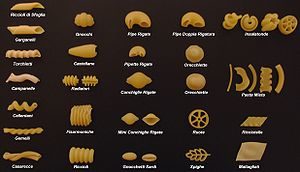
Amongst the pasta brands, the Gragnano Pasta still respect all the traditional requirements for pasta making.
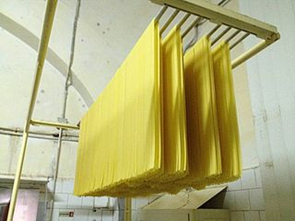
Cooking Pasta: the Basics
You need to use at least 1 litre of water for each 100g of pasta. Using the correct amount of water is essential for the cooking process or the result will not be right!
It is also very important that you follow the exact suggested cooking time that is written on the pasta pack: overcooked pasta is not nice at all!
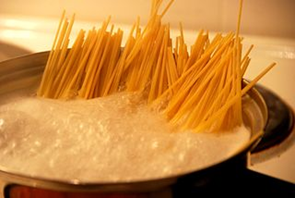
Then, add 7g of salt for 100g of pasta as soon as the water begins to boil.
DON’T ADD ANY OIL in the boiling water during the cooking process! It is useless and it just leaves an unpleasant flavour. Furthermore, the sauce will not stick to the pasta if you add oil.
One more thing to keep in mind is that the pasta should be cooked WITHOUT lid.
Drain the Pasta
So ones you have boiled your pot of spaghetti. I have seen some people that rinse the pasta with cold water to stop the cooking process. That’s actually the worst possible thing you can do! A good bowl of pasta needs a nice starch coating to make the sauce really stick. If you rinse it before adding the sauce, though, you’re washing off the starch that can improve your dish.
Risotto and Pasta are not a Side Dish!
Pasta and risotto are a unique meal, and they should not be served as a side dish for meat or fish. In many countries, it is admissible to serve pasta with a steak or a chicken stew, but in Italy it is intolerable!
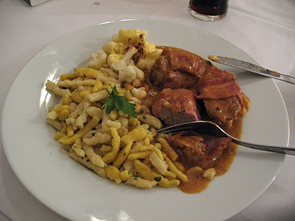
It is important to note that the unique accepted meat cuts for pasta are the mincemeat, which is used for the Bolognese sauce, and the bacon for the Carbonara Sauce… the famous American-Italian recipe “Pasta with Chicken” sounds extremely weird to Italians!
Traditional Sauces are Inviolable
The most beloved aspect of pasta is that it is very versatile and you can dress it in the way you like better. However, typical sauces should be done in the traditional way, following the steps that are passed down from generation to generation. For instance, it is completely not tolerable to dress your Carbonara spaghetti in cream instead of the traditional egg, pepper and parmesan cheese!
Other classic matches are Trofie with Pesto, Orecchiette with Cime di Rapa Sauce, Spaghetti with Arrabbiata Sauce and Fusilli with Bolognese Sauce… try them all!
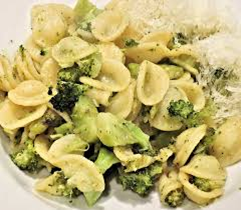
Ketchup on Pasta is the Enemy
Please, just don’t do it.
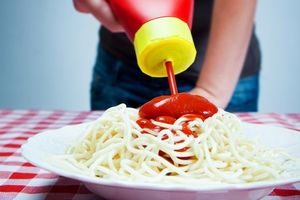
Parmesan is Sacred
Grated Parmesan is a must and it cannot be substituted by cheddar cheese in any way! Parmesan has to be shaved ON TOP of the pasta and not stirred into it, not to make the pasta sticky and unpleasantly soft.
However, just keep in mind that Parmesan is too strong in taste for fish, and for this reason is not use on top of fish or seafood!
Toss the Pasta
Pasta must be dressed only after being drained, and not when still in the boiling water pot. Therefore, drain it and then put in a pan on a high heat, to stir the pasta with the sauce and to warm everything up! Alternatively, after draining it, you can also toss your pasta directly in the pot, mainly for cold sauces like Pesto, or fresh ingredients, such as cherry tomatoes or mozzarella.
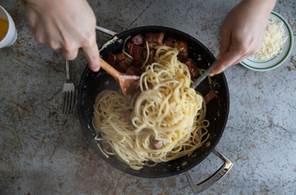
The most important Ingredient: LOVE
Love is the real hub of the Italian kitchen. Recipes have passed down from grandmothers to mothers and nephews and every family has its own tips and secrets. Sharing the meals and cooking all together is one of the favourite activities for Italians and perhaps it comes so easy to them. We all hope to be able to pass this passion on you all as well!




